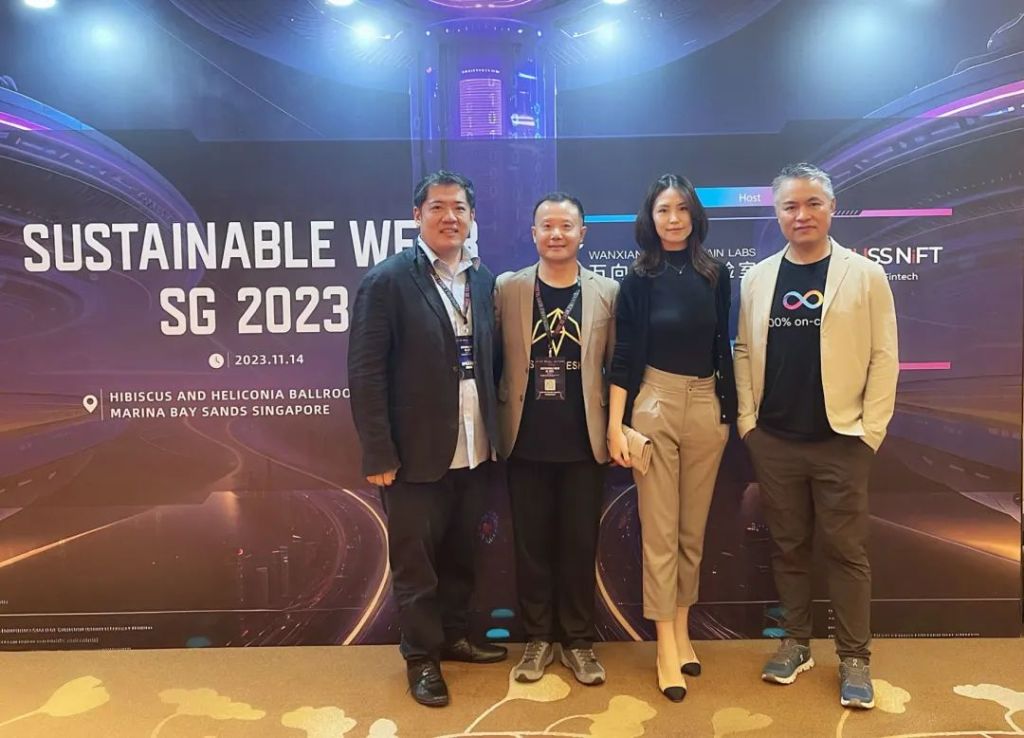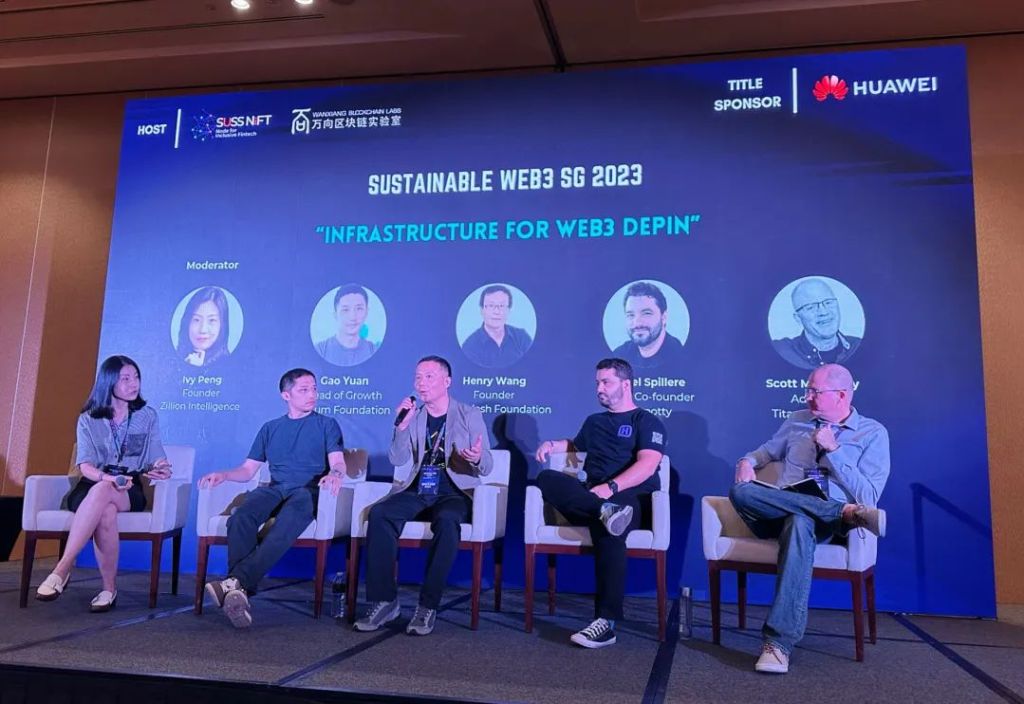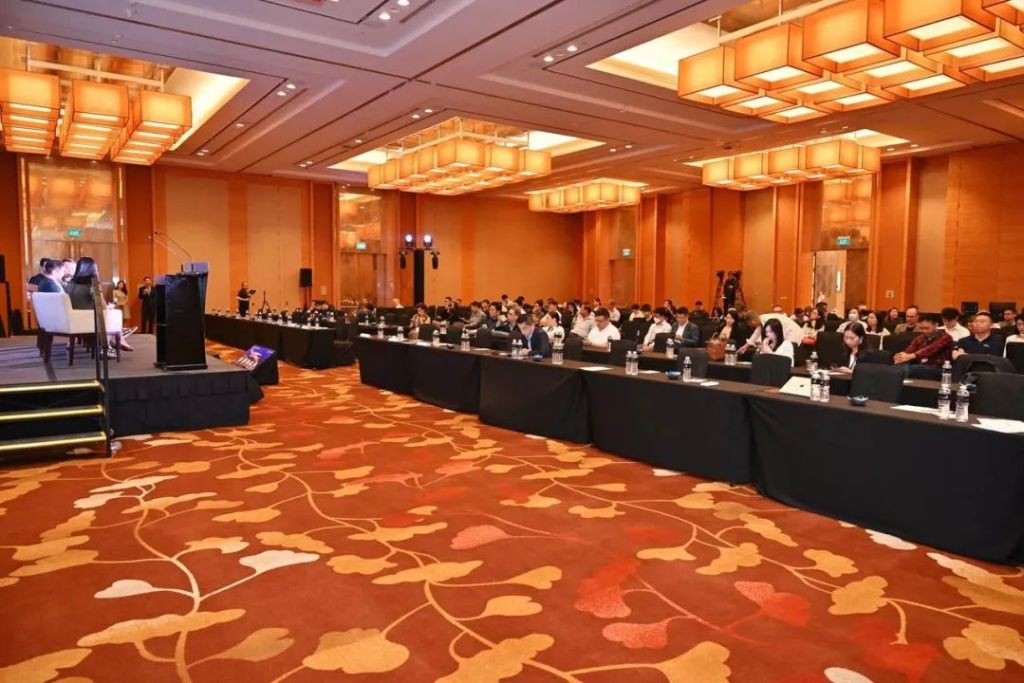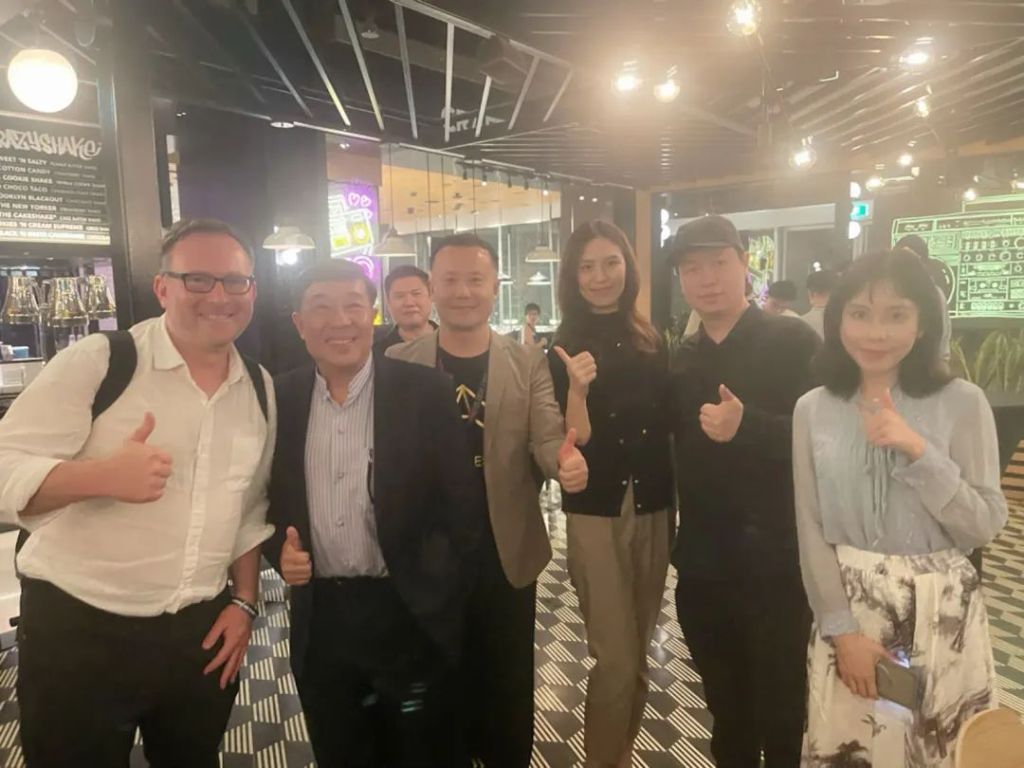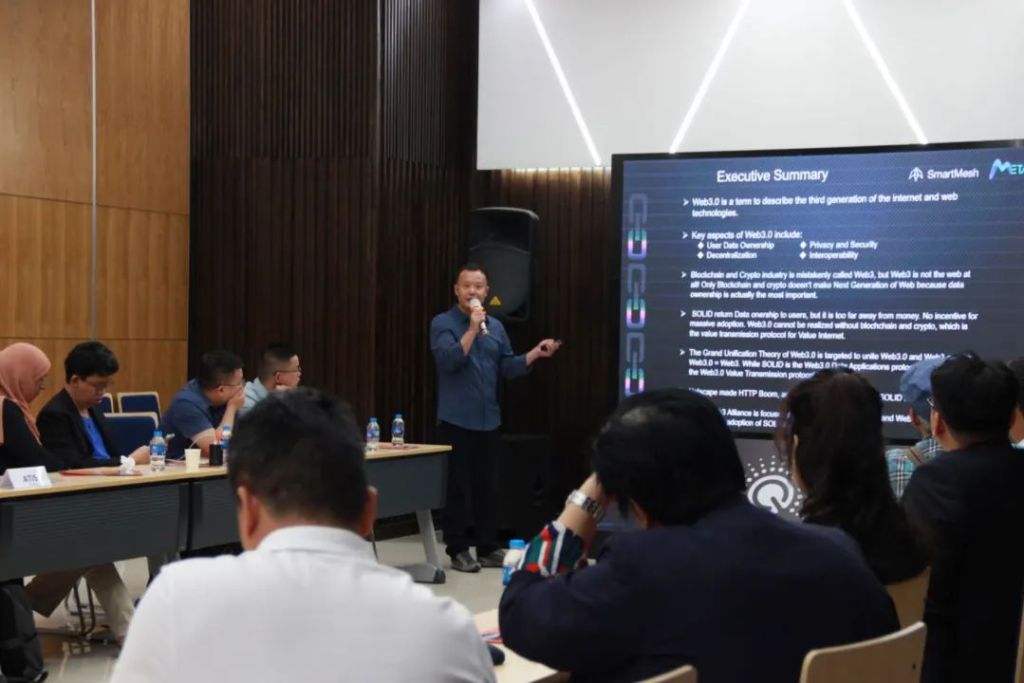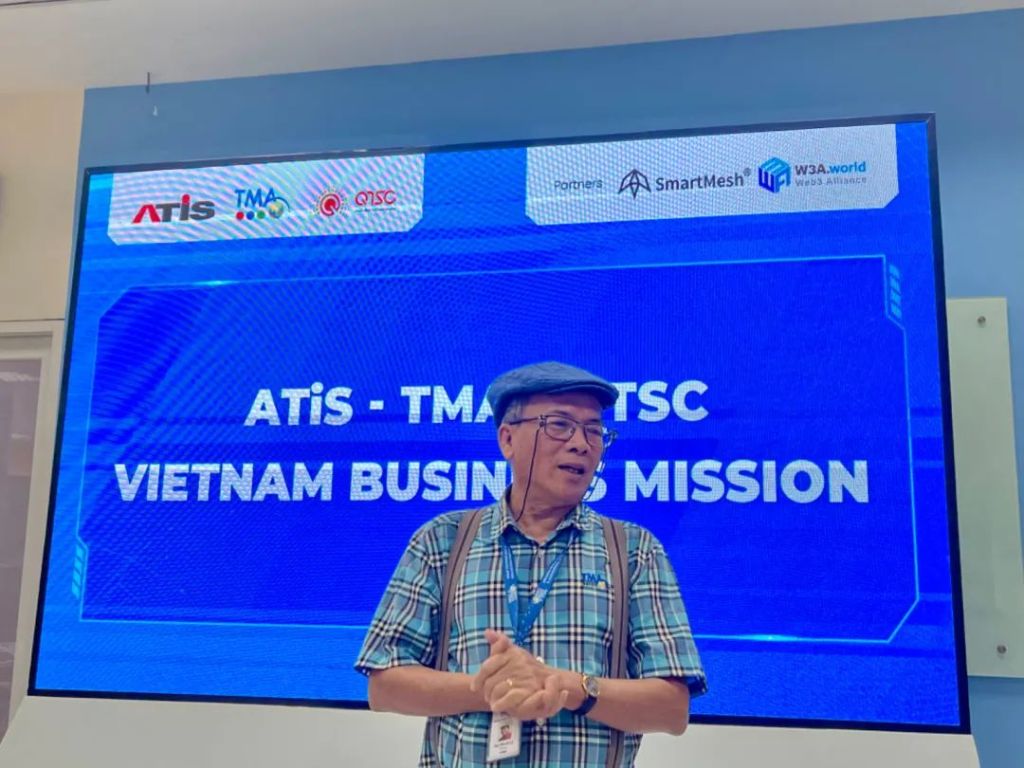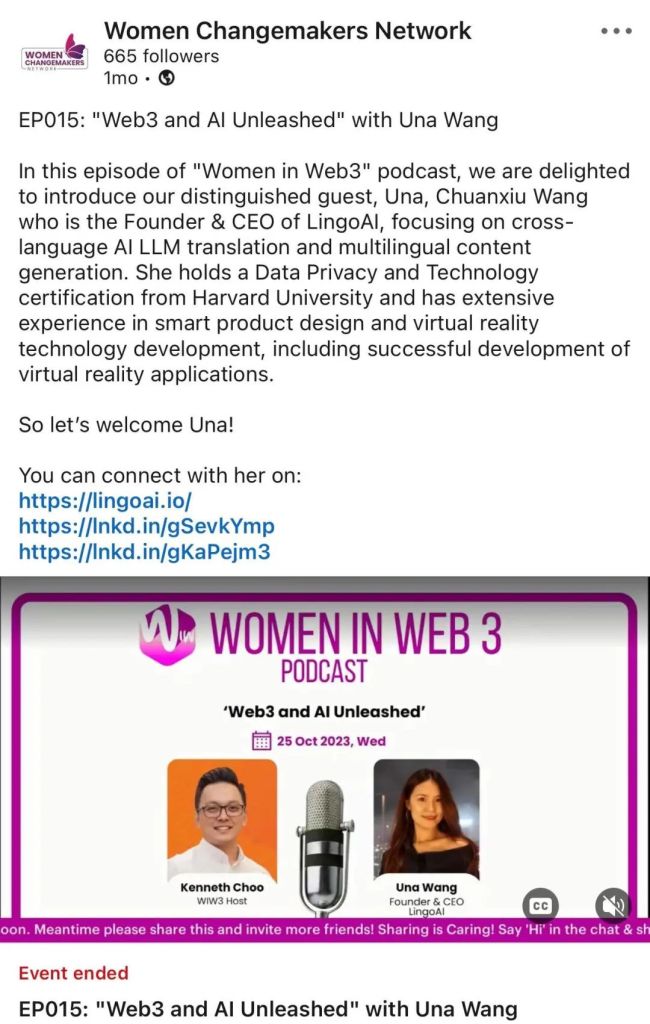2023 marks the 20th anniversary of the birth of the term Web 3.0. Over the past 20 years, Web 3.0 has developed amidst ridicule, misunderstanding, disagreement, and controversy. Countries, industries, experts, scholars, and the general public worldwide need a unified understanding of Web 3.0, which severely hinders its healthy development. Fortunately, thanks to the efforts of the SmartMesh ecosystem, the Web 3.0 Grand Unification Theory has been born. This theory combines the SOLID protocol used in the upgrade of the HTTP by the father of the World Wide Web, which evolved from the Semantic Web, with blockchain technology that upgrades the information internet to a value internet. It simultaneously addresses the key issue restraining the development of Web 3.0: the sovereignty of personal data and the realization of its value. The Web 3.0 Grand Unification Theory aims to unify the correct understanding of Web 3.0 on a global scale. This not only allows the value Internet and Web 3.0 to develop naturally from the bottom up but also enables regulatory bodies to understand how to support and regulate the healthy development of their country’s Web 3.0 from the top down. The Web 3.0 social network protocol MetaLife.social is a fusion example of this Grand Unification Theory.
We call MetaLife.social the first decentralized social product of Web 3.0 because it is the first to integrate Web 3.0 data/application protocols with Web 3.0 value transfer protocols. Additionally, MetaLife supports communication without internet and offline payments, which are fundamental for the future cashless society and all Web 3.0 applications of the third-generation internet. The SmartMesh ecosystem, composed of SmartMesh, MeshBox, MetaLife, and LingoAI, along with some projects that possess a real Web 3.0 foundation, has formed the World Web3 Alliance (W3A). Due to the primitive and spontaneous ideology of Web 3.0, these projects resonated with the SmartMesh ecosystem and joined the World Web3 Alliance to co-build the next generation of the internet. The World Web3 Alliance first appeared at the SUSTAINABLE WEB3 SG 2023 summit, co-hosted by the Singapore University of Social Sciences and Wanxiang Blockchain Labs.
At the summit, W3A members SmartMesh, MeshBox, MetaLife, LingoAI, Titan, and EMC discussed the three major tracks of Web3.0 development during the Decentralized Physical Infrastructure Network (DePIN) forum and speeches: 1) DePIN; 2) DeSocial, a decentralized social network; and 3) AI.
After the Singapore Web3 Summit, Henry, the founder of SmartMesh, was invited by the Singapore Chamber of Commerce for Telecommunications and Technology to give a talk at TMA, the second-largest software engineering company in Ho Chi Minh City, Vietnam, on the 28th. The topic of his talk was ‘The Grand Unification Theory of Web 3.0’. This marked the first enlightenment journey of the Web 3.0 unification theory in Vietnam. Before this, none of the people in the places visited by the Singapore delegation in Vietnam had heard of the father of the World Wide Web’s Semantic Web and the SOLID project. Most people thought Web 3.0 was just blockchain and cryptocurrencies, but this is fundamentally wrong. Blockchain is only the value transfer protocol of Web 3.0, not all of it. The data application protocol of Web 3.0 is equally, if not more, important than the value transfer protocol. The SOLID protocol created by the father of the World Wide Web is a Web 3.0 data/application protocol, and our creation, MetaLife.social, is a unified protocol that integrates Web 3.0 data and value. The Web 3.0 data protocol returns data ownership to its true owners, such as users, SMEs, organizations, and governments. The Grand Unification Theory of Web 3.0/Web3 will clearly explain what true Web 3.0 is and how it can bring profound changes to the world.
Web 3.0 can quickly connect unconnected populations and rapidly achieve inclusive finance in emerging countries. Emerging nations like those in Southeast Asia can take advantage of the opportunities presented by the next generation of the internet to achieve leapfrog development in information technology and economics within a decade. Previous examples of such significant opportunities were the PC internet in the United States and the mobile internet in China. The SmartMesh ecosystem and W3A will lead the world in initiating the crucial decade of the value internet, Web 3.0.
The specific tasks described in the text are as follows:
1. Photon Network Optimization for MetaLife: This involves designing and optimizing the functionality of the Photon Network for the decentralized social network MetaLife. Adjustments and logical validations of the withdrawal-related operation processes are being made to support subsequent expansions of Photon incentives.
2. Troubleshooting and Resolving Photon Channel Locking Issues: This task involves investigating issues related to Photon channel locking and conducting logical analyses and resolutions for data synchronization problems caused by related Spectrum node switches. This is aimed at ensuring the proper distribution of incentives.
The specific tasks outlined in the text are as follows:
1. Upgrade Analysis for MetaLife App Registration via Invitation: This task involves analyzing upgrades for the MetaLife app’s invitation registration system, intending to introduce Pub-related registration information to support the remote mutual following feature. This is aimed at enhancing the efficiency of the app’s user promotion.
2. Review and Verification of Follow Reminder Function: This involves testing the app’s frontend and backend for active reminder functionality when receiving new follows, to improve the user experience of MetaLife.
3. Functional Design Assessment for Related GameFi Projects: The task includes analyzing design ideas and algorithms for game creation incentives, and providing references for enhancing and expanding the content within MetaLife.
4. Analysis and Design of Private Group Features: Continuing the logical analysis of the main features of private groups, assessing the design and development priorities of private group function modules, to support the expansion of group chat in MetaLife.
5. Feasibility Discussion on Introducing Public Channels: This involves discussions on designing public communication themes in different sections and the necessity of recommending hot content, to further enhance the attractiveness of content on MetaLife.
6. Troubleshooting for Old Account Importation Issues: Addressing issues related to incorrect passwords during account importation, by replicating and analyzing the problem based on community feedback, and promptly resolving these issues to improve user experience.
The specific tasks for participating in the development of the MetaLife Dapp within the SmartMesh ecosystem are as follows:
Backend Development:
1. Pub Quality Tracking and Improvement: Monitoring and enhancing the quality of the Pub component.
2. Upgrade of Android Debug/Release Environment: Updating and refining the development environment for both debug and release modes in Android.
3. Feasibility and Partial Implementation of High Reply/High Like Lists: Exploring the feasibility of implementing features for listing posts with high replies or likes, and partially developing these features.
Frontend Development:
1. Contacts Page Modification and Database Integration: Updating the Contacts page to save changes to the database and adding reminder functionalities.
2. Bug Fixes Based on Community Feedback: Addressing and resolving bugs identified and reported by the user community.
3. Development of Like Reminder Feature Logic: Researching and developing the logic for a feature that provides reminders for likes received.
The marketing, business, and financing activities of the SmartMesh ecosystem have been progressing in an organized manner, as detailed below:
1. Participation in the SUSTAINABLE WEB3 SG 2023 Summit: On November 14, the World Web3 Alliance made its first appearance at the SUSTAINABLE WEB3 SG 2023 summit. This event was co-hosted by the Singapore University of Social Sciences and Wanxiang Blockchain Labs. Renowned global speakers discussed in-depth topics such as Web3 security, DePIN (Decentralized Physical Infrastructure Network), and RWA (Real World Assets), sharing their insights. Prominent figures including Henry, the founder of SmartMesh; Una, the founder of LingoAI; Jing, the co-founder of Titan along with advisor Scott; and Alex, the co-founder of EMC, attended the summit and delivered speeches.
Henry Wang, the founder of SmartMesh, Gao Yuan, head of growth at Helium Foundation, Daniel Spillere, co-founder and CTO of Hotspotty, and Scott McCarthy, consultant of Titan Network, discussed DePIN under the chairmanship of the forum moderator Ms. Peng Zhao, founder of IoT Think Tank Why is infrastructure so important for real-world physical facilities? Will DePIN become mainstream? What value can we bring to the DePIN ecosystem? A round table discussion was held on other topics.
DePIN represents a new model of infrastructure development. It utilizes a decentralized and open participation approach, leveraging blockchain technology to unlock the potential of physical assets and build more sustainable and efficient networks in the physical world. DePIN serves as the foundation for the value internet, while Web 3.0 acts as the decentralized application layer of this value internet. The SmartMesh and W3A ecosystem, spanning from the physical layer to the application layer, have laid a solid foundation for both the value Internet and Web 3.0.
In his speech, Henry described how to upgrade from Web 2.0 to Web 3.0 starting from the protocol layer, and why the combination of SmartMesh, MeshBox, MetaLife, LingoAI, Titan, Filecoin, and Solid can form an ecosystem geared towards large-scale Web 3.0 applications.
He mentioned a project planned by Justin, a friend of the father of the World Wide Web. This project aims to store personal medical and health data, as well as climate change-related data, in Pods. These can be distributed and stored on Filecoin/IPFS through MetaLife, Titan, and Solid. This constitutes a complete Web 3.0 base chain with significant market potential.
After the summit, there was an After Party where guests continued to interact and engage in cordial and enthusiastic discussions about the large-scale deployment of Web 3.0 and resource integration for market collaboration. This event provided a platform for further networking and sharing of ideas among the participants, fostering deeper understanding and potential partnerships focused on advancing the Web 3.0 ecosystem.
On November 15th, the Singapore Fintech Festival opened. This event is the largest fintech gathering in the world, attracting 60,000 participants and featuring a world-class, meticulously planned conference and exhibition space. WEB3WED, in collaboration with the World Web3 Alliance (W3A), hosted its last gathering of 2023 on the evening of the opening day. It was a significant achievement for this event to be recognized as an official fringe event of Fintech Week. Numerous visitors to Singapore joined the event and interacted with influential and diverse members of our Web3 community, enhancing networking opportunities and fostering collaborations within the fintech and Web3 sectors.
After the summit, SmartMesh founder Henry, Lingo AI founder Una, and Justin, a friend of the father of the World Wide Web, held their second video conference to discuss the collaboration between the W3A Alliance, MetaLife, and SOLID. The focus of their discussion was on democratizing the next generation of the World Wide Web under Web 3.0, returning control to the people and small and medium-sized enterprises (SMEs), and ending exploitation by monopolistic platforms. This change begins with decentralized social network protocols. Not only does SmartMesh’s application layer start with the decentralized social network MetaLife, but the name of the Web 3.0 data protocol created by the father of the World Wide Web is SOLID, standing for Social Linked Data, and it starts with social. Web 3.0 also forms the foundation for the future of AI to continuously serve humanity. To preach Web 3.0 at this cognitive level and clarify its essence will usher in a new wave of developments in the industry!
On the occasion of the 50th anniversary of diplomatic relations between Singapore and Vietnam, Henry, the founder of SmartMesh, was invited by the Singapore Chamber of Commerce for Telecommunications and Technology to give a speech at TMA, the second-largest software engineering company in Ho Chi Minh City, Vietnam. The speech, scheduled for the 28th, was titled “The Grand Unification Theory of Web 3.0.” This event marked a significant opportunity for cross-border knowledge exchange and collaboration in the field of Web 3.0, aligning with the milestone anniversary of the two countries’ diplomatic relations.
This event represented the inaugural enlightenment journey of the Web 3.0 unification theory in Vietnam. Before this, no one in the locations visited by the Singaporean delegation in Vietnam had heard of the Semantic Web and SOLID project, pioneered by the father of the World Wide Web. The common misconception was that Web 3.0 was synonymous with blockchain and cryptocurrencies, but this understanding is fundamentally flawed. Blockchain is merely the value transfer protocol of Web 3.0, not its entirety. The data application protocol of Web 3.0 is as crucial, if not more so, than the value transfer protocol. The SOLID protocol, created by the father of the World Wide Web, represents the data/application protocol of Web 3.0, while MetaLife.social, developed by SmartMesh, is a unified protocol that integrates Web 3.0 data and value. The Web 3.0 data protocol aims to return data ownership to the true owners, such as users, SMEs, organizations, and governments. The Grand Unification Theory of Web 3.0/Web3 will clearly define what true Web 3.0 is and how it can bring profound changes to the world.
Dr. Nguyen Huu Le, the founder and chairman of the board of TMA, also delivered a keynote speech at the same event. He discussed the development of software engineering, the internet, and AI in Vietnam. Dr. Le showed great interest in Henry’s presentation on the Grand Unification Theory of Web 3.0. Following this interest, both parties agreed to meet again in Singapore to discuss potential collaboration opportunities. This agreement signifies a promising step towards fostering international cooperation and knowledge sharing in the fields of software engineering, internet technology, and AI, particularly in the context of the evolving landscape of Web 3.0.
QTSC (Quality Tech Solution Complex) is the largest technology park in Vietnam. Representatives from TMA and QTSC provided the Singaporean delegation with detailed presentations about the development of the IT sector in Vietnam and potential opportunities for collaboration. These discussions highlighted the advancements and prospects in Vietnam’s technology landscape, emphasizing areas where partnerships and joint ventures could be mutually beneficial, particularly in light of the burgeoning tech industry in the region.
Una, the founder and CEO of LingoAI, a project within the SmartMesh ecosystem, was invited for an interview in the “Women Changing the World” segment. Singaporean host Kenneth interviewed Una in the “Women in Web3” podcast. LingoAI specializes in cross-lingual AI LLM (Large Language Models) translation and multilingual content generation. Una, a Harvard University certified expert in data privacy and technology, has extensive experience in intelligent product design and virtual reality technology development, including the successful development of virtual reality applications.
LingoAI integrates and utilizes large language models, knowledge graphs, and the Semantic Web. In collaboration with Tim Berners-Lee’s SOLID project and the SmartMesh ecosystem’s decentralized social network project MetaLife.social, LingoAI aims to help businesses and individuals break free from data silos while preserving data sovereignty and privacy. This initiative is designed to create a decentralized data market, unleashing effective data to deeply empower artificial intelligence and enhance productivity, thus offering new growth opportunities for the global economy.
The following are key updates and developments in the SmartMesh ecosystem:
1. LingoAI Foundation’s Airdrop Plan: The Singapore-based LingoAI Foundation plans to conduct an airdrop for SMT holders in the MetaLife and Tango wallets. The specific rules and timing of the airdrop will be announced by the foundation. The airdrop will consider a ‘time factor’ starting from October 20th, when the airdrop was first mentioned. The earlier SMT is transferred from CEX to the wallet, the higher the time factor, and consequently, the higher the proportion of the airdrop received. The LingoAI smart contract will be deployed on the Spectrum public chain, and the Lingo can be received and transferred using MetaLife and Tango wallets. As per convention, all subsequent ecosystem projects will also conduct airdrops for SMT holders.
2. SmartMesh Foundation’s SMT Buyback Plan: Considering the healthy development state of the SmartMesh ecosystem and the undervaluation of SMT prices, the SmartMesh Foundation has decided to buy back at least 200 million SMT for ecosystem development.
With the launch of MetaLife, the SmartMesh ecosystem’s foundational projects are positioned in various domains: Spectrum’s public chain and Layer 2 Photon Network for offline payments; MeshBox, Titan, Filecoin in the Decentralized Physical Infrastructure Network (DePIN); MetaLife.social in the decentralized social network (DeSoc); and LingoAI in the AI Large Language Model (LLM) sector. The SmartMesh Foundation views AI, decentralized social networks, and DePIN as the three main drivers of the next generation of the internet and has strategically positioned itself across these areas.
The foundation invites everyone to download MetaLife from https://MetaLife.social to discuss Web 3.0 and share life parts. Daily participation earns MLT rewards, reflecting the value of personal data.
The emergence of MetaLife.social marks a point of no return in the transition from Web 2.0 to Web 3.0, awakening people to the value of their data and privacy. Governments in developing countries, especially in Southeast Asia, will realize the potential for their citizens to reclaim their data and its value from foreign platforms. This not only protects the data privacy of citizens and SMEs but also reclaims the value and cash derived from data. People deprived of data and financial resources can achieve Universal Basic Income through MetaLife.social, enabling them to access education and improve their living conditions. MetaLife.social has the potential to become a key protocol in achieving the United Nations’ Sustainable Development Goals and fulfilling the mission of building a shared human destiny.
Given the positive development of the SmartMesh ecosystem, the foundation believes that the SMT price is undervalued and has decided to buy back SMT to better facilitate ecosystem development.







